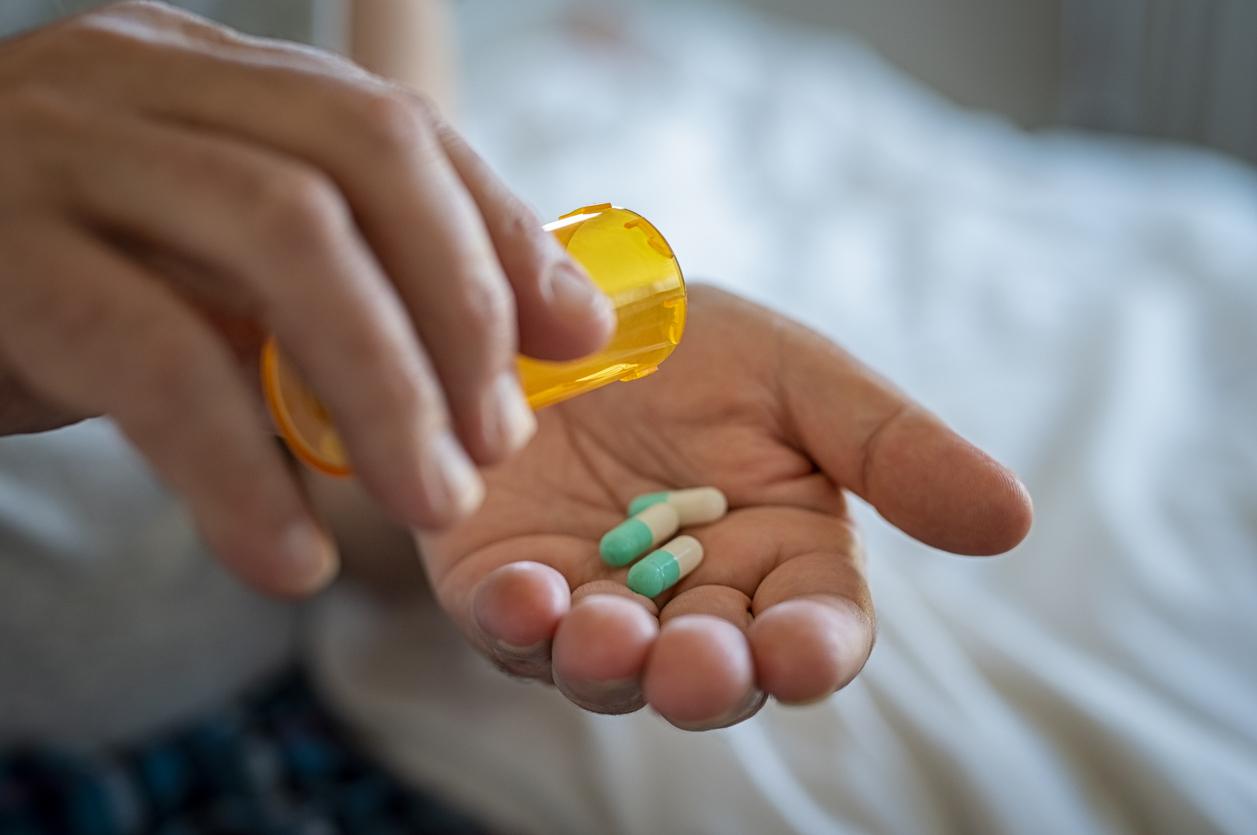Used to treat depression, antidepressant treatments can cause side effects, such as weight changes or sleep disturbances.

- It took until the 1990s to learn about the adverse effects of antidepressants.
- Some cause weight changes, sleep disturbances or a drop in blood pressure.
- Others can create serious food or drug interactions.
At least seven million people use antidepressants in France. But are they still useful? This is the subject of the Enquête de santé programme, broadcast on Tuesday 28 February on France 5. She recalls in particular that until the 1990s, the side effects of these drugs were not known. Indeed, the laboratories were not subjected to an independent control of the studies on the effectiveness of their drugs. However, they can be responsible for a variety of adverse effects.
Antidepressants: when are they used?
In most cases, these drugs are prescribed in addition to psychotherapy. They help relieve some symptoms of depression, “especially the sadness and motor slowing that characterize this disease”specifies the Vidal®. They are reserved for cases of moderate to severe depressive episode. “Antidepressants do not work immediately and it takes two to four weeks for symptoms to regress“, indicates the Health Insurance.
What are the side effects of antidepressants?
At the start of treatment, the risk of side effects is high. According to theHealth Insurance, these symptoms lessen over time. This can be drowsiness, which is particularly dangerous when driving a vehicle, constipation, weight variation, sexual problems or even a drop in blood pressure.
But side effects vary, both from person to person and also from the type of drug. Thus, serotonin reuptake inhibitors are the best tolerated according to the Vidal®. But they can still cause digestive upset, such as nausea and diarrhea, insomnia, drowsiness, or headaches. Imipramine antidepressants are an older family of drugs, which have been around since the 1960s. According to the drug dictionary, they cause more side effects than newer drugs. The three main ones are constipation, dry mouth and orthostatic hypotension, which is a drop in blood pressure when standing up. As for MAOI antidepressants, also used for a long time, they can cause serious drug or food interactions. These risks have led to reserving these two types of treatment for cases of therapeutic failure: situations where no other antidepressant medication has worked.
Antidepressants: a long-term treatment
The treatment of depression is long, according to theHealth Insuranceit lasts”for a minimum of four to six months after symptoms improve to consolidate positive results”. Stopping can only occur after six to twelve months of remission, otherwise there is a significant risk of recurrence. For some people, treatment lasts for several years to avoid relapse. According to Insermone in five people suffers or will suffer from depression in their lifetime.


















